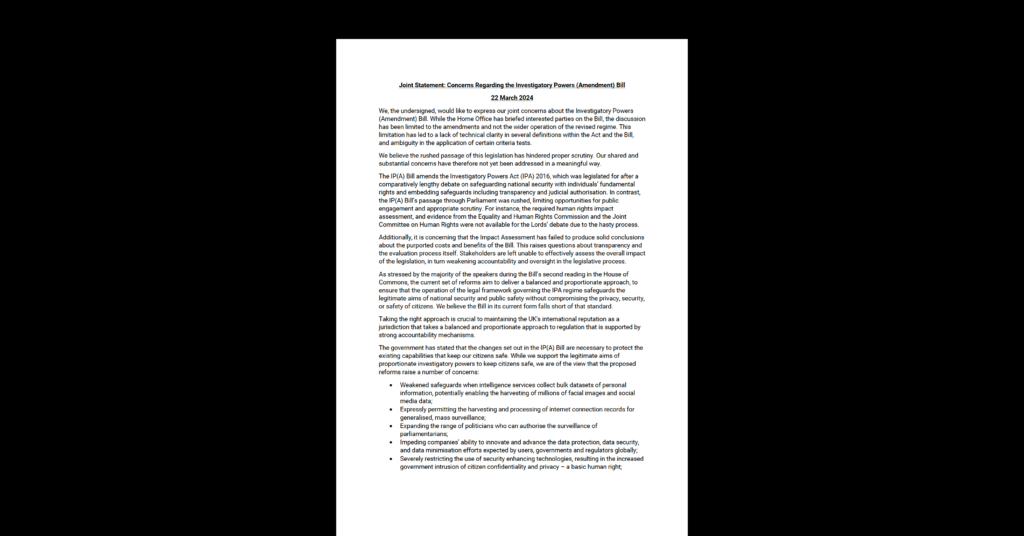European Policy, Open Internet
CDT Welcomes IMCO’s Draft Opinion on Copyright in the Digital Single Market as a First Step Towards a Balanced Debate
The adoption of the Directive on Copyright in the Digital Single Market as proposed by the European Commission requires several Committees of the European Parliament to draft Opinions as a form of ‘consultation’ to be considered in the Report by the Committee leading this file in the Parliament, the Legal Affairs (JURI) Committee.
Following the publication of the draft Opinion of the Culture and Education (CULT) Committee of the European Parliament, the Internal Market and Consumer Protection (IMCO) Committee Rapporteur, MEP Catherine Stihler (S&D, UK), recently published her draft Opinion on the matter. While the CULT draft Opinion, with its many flaws as we have previously pointed out, positively acknowledges the crucial role of internet users as contributors to the digital ecosystem, the IMCO draft Opinion goes even further in the amendment proposals and emphasises the interests of a wide range of players in the copyright ecosystem: from internet users and SMEs, to creators and the education, research and cultural heritage institutions. This alone deserves our praise.
MEP Catherine Stihler makes it abundantly clear that the Commission’s proposal requires substantial changes and proposes amendments that address many of the concerns we have, and will continue to, put forward. But more than that, in each of these points she suggests sensible solutions.
Deletion of press publishers right
Most notably, the IMCO Rapporteur calls for the deletion of Article 11 and corresponding recitals that introduce a new neighbouring right for press publishers, given that it “lacks sufficient justification”. We strongly agree, having repeatedly stated that an ancillary right for press publishers is a misguided attempt to help newspaper publishers access new funding streams, as the examples in Germany and Spain have demonstrated. No doubt the concern of ensuring a sustainable free press is a valid one we share, but the Commission does not provide any justification on what, if any, new revenues a publisher’s right would generate, and moreover how this right would be used. This claim is being raised by various groups such as the European Research Centres in their open letter to the European institutions which, just like MEP Catherine Stihler, believe that the problems faced by press publishers in the digital era of enforcing the copyrights over the works that are licenced to them are more adequately addressed in other avenues, such as in enforcement legislation.
Intermediary liability provisions of the e-Commerce Directive remain untouched
We also welcome the fact that the IMCO draft Opinion recognises the importance of the intermediary liability protections enshrined in Article 14 of the e-Commerce Directive, ensuring that the wording in Article 13 in the draft Opinion does not conflict with existing legislation. The incompatibility of Article 13 with the e-Commerce Directive, as well as with the Charter of Fundamental Rights of the EU, is also stressed in a new study by Dr. Christina Angelopoulos, an independent expert of intermediary liability at the Centre for Intellectual Property and Information Law (CIPIL) at the University of Cambridge.
MEP Stihler also rightly removes all references to filtering measures and “effective content recognition technologies”. The use of such technologies would lead to general monitoring of uploaded content, which “potentially harms the interests of users” and contradicts Article 15 of the e-Commerce Directive. Following these recommendations in the draft Opinion, it remains disappointing to see that the amendment proposed was not deletion of Article 13 and corresponding Recitals. What then is proposed instead? The IMCO draft Opinion highlights that ‘fair and balanced agreements’ between online service providers and rightholders should only be concluded where the liability exemptions of the e-Commerce Directive do not apply. This remains a step in the right direction, but the interpretation around ‘fair and balanced’ agreements would surely lead to much legal uncertainty. Article 13, or the Copyright DSM Directive for that matter, is not the appropriate instrument to address the challenges presented by the Commission. The so-called ‘value gap’, in which rightholders claim that internet platforms that enable users to upload audio and video content should share more revenues generated from online advertising, is essentially a commercial issue and should not be used to justify broad legislation that impacts the internet as whole, and with grave consequences for citizens’ rights to free expression and access to information.
A broader exception for Text and Data Mining
Lastly, the draft Opinion improves certain elements of concern in the text and data mining (TDM) exception proposed by the Commission in Article 3. The scope of beneficiaries of the exception is extended to “any individual or entity, public or private, with lawful access to mine content”. Extending the scope of beneficiaries is exactly what we have been advocating. However, the addition of “lawful access to mine content” is worrying, since the freedom to mine should refer to legal access to content, and not to the mining permission.
The Rapporteur also gets rid of the limitation of mining “for the purpose of scientific research”. We welcome this amendment suggestion since the Commission proposal excludes many innovative uses of TDM, such as journalism, advertising and translation, that bring great benefits to our society. All in all, the TDM exception as proposed by MEP Stihler would have the potential of advancing EU competitiveness and research.
Overall, the IMCO Draft Opinion is a step in the right direction towards harmonising and modernising key aspects of the European copyright framework while equally respecting the interests of all stakeholders in the value chain.


